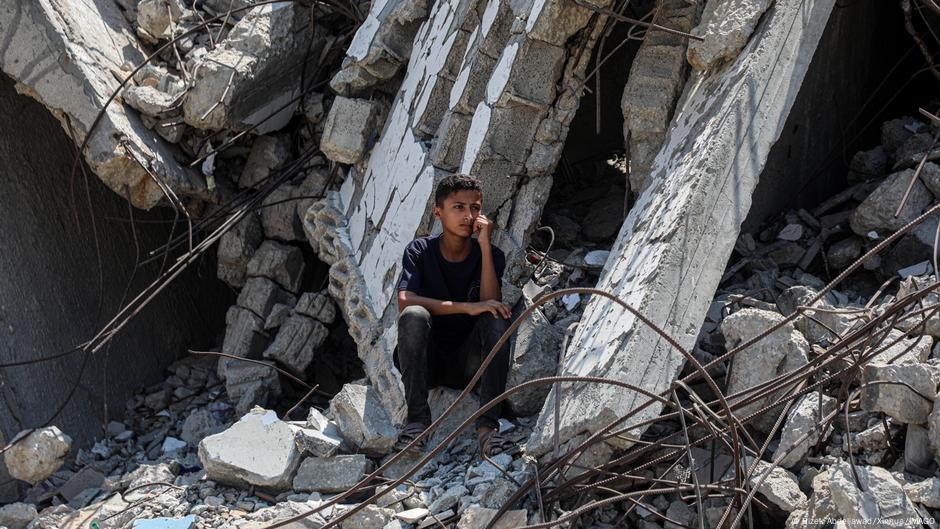
Global Condemnation of Israel's Gaza City Plan
Several countries have expressed strong disapproval of Israel's plan to seize control of Gaza City, calling it a "dangerous escalation." This move has drawn criticism from Arab and Muslim nations, with some 20 countries, including Egypt, Saudi Arabia, and Turkey, labeling the initiative as a "flagrant violation of international law."
In a joint statement, these nations accused Israel of attempting to entrench an illegal occupation and impose a fait accompli that contradicts international legitimacy. The plan, proposed by Israeli Prime Minister Benjamin Netanyahu and approved by Israel’s Security Cabinet, involves launching a new military offensive to take over the largest city in the Palestinian territory. It also includes the establishment of an alternative civil administration that is neither Hamas nor the Palestinian Authority.
Turkish Foreign Minister Hakan Fidan emphasized the need for Muslim nations to unite in opposition to this plan following discussions in Egypt. Meanwhile, even within Israel, the military chief has warned against proceeding with such a strategy.
UK Pledges More Aid for Gaza
The United Kingdom has pledged an additional £8.5 million ($11.4 million; €9.8 million) to support United Nations aid projects in Gaza, aiming to address growing concerns about widespread hunger. Development Minister Jenny Chapman highlighted the importance of ensuring that the region is "flooded with aid" to prevent chaotic scenes caused by the insufficient supply of essential resources.
Chapman stated that the UK is ready to provide more aid through its partners but stressed that Israel must allow safe and secure access to the region. She criticized the current situation, where much of the aid remains at the border, causing desperate civilians to struggle for limited supplies.
This funding is part of a larger £101 million commitment by the UK to the Palestinian territories this year. The money will be delivered through the UN's Office for the Coordination of Humanitarian Affairs (OCHA).
Escalating Violence in Gaza
Gaza's Hamas-run civil defense agency reported that at least 10 people were killed across the territory on Saturday, including civilians waiting to collect aid. At least six of those killed and 30 others injured were targeted near an aid point in central Gaza. Strikes in other areas of the territory resulted in multiple casualties, according to civil defense spokesman Mahmud Bassal.
Despite recent efforts by Israel to ease restrictions on aid, which had previously led to shortages of food, medicine, and fuel, aid agencies like the UN's World Food Program continue to report that only a fraction of the needed supplies are reaching Gaza.
Protests and Political Tensions
Large crowds gathered for anti-government protests in Israel, the first since Prime Minister Benjamin Netanyahu confirmed plans to take over Gaza City. Protesters fear that these actions could endanger the lives of Israeli hostages held by Hamas.
Meanwhile, in London, British police arrested at least 365 pro-Palestinian protesters during a rally supporting the banned group Palestine Action. The group was outlawed under anti-terrorism laws following a break-in at a Royal Air Force base in June. Supporters argue that the law illegally restricts freedom of expression, while the government claims it is necessary to combat terrorism.
Germany Faces Backlash Over Arms Export Ban
German Chancellor Friedrich Merz's decision to halt weapons exports to Israel for use in the Gaza Strip has sparked fierce opposition within his own conservative Christian Democratic Party (CDU) and its Bavarian sister party, the Christian Social Union (CSU). Some members criticize the move as going against Germany's "Staatsräson" (reason of state), a principle that prioritizes national interests over other considerations.
This shift in policy marks a significant change for Germany, one of Israel's strongest international allies. The decision has raised concerns about the country's role in the broader conflict and its relationship with key regional players.
Lebanon and Hezbollah
Six Lebanese soldiers were killed when a blast occurred at a Hezbollah arms depot in the southern city of Tyre. The depot was part of Hezbollah's military infrastructure, which the Lebanese army has been dismantling in cooperation with a United Nations team as part of a ceasefire agreement with Israel.
Beirut faces pressure to disarm Hezbollah under a ceasefire deal signed in November. The incident highlights the ongoing tensions between Lebanon and the Iran-backed group, which continues to play a significant role in regional politics.
Ongoing Coverage
As the situation in Gaza continues to evolve, international reactions remain divided. While some nations condemn Israel's actions, others support its right to defend itself. The humanitarian crisis in Gaza shows no signs of abating, with aid deliveries still falling short of what is needed.
The UK's increased financial commitment to relief efforts underscores the urgency of the situation, but without improved access and security, the suffering of civilians is likely to persist. Meanwhile, political tensions in Germany and the UK highlight the complex web of international relations surrounding the conflict.
